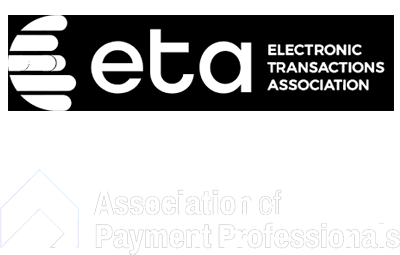20 Oct

Introduction
For businesses that accept credit card payments, understanding credit card processing fees is essential for financial planning and decision-making. Credit card processing fees can vary based on several factors, including the type of business, the processing method, and the pricing structure of the payment processor. In this comprehensive guide, we will delve into the typical credit card processing fees and the factors that influence them. By gaining a clear understanding of these fees, business owners can make informed decisions and optimize their payment processing costs.
The Basics of Credit Card Processing Fees
Credit card processing fees refer to the charges associated with accepting and processing credit card payments. These fees are typically incurred by businesses when they partner with payment processors to handle their transactions. Understanding the structure and components of these fees is crucial for businesses to manage their payment processing costs effectively.
Factors Affecting Credit Card Processing Fees
Several factors influence credit card processing fees. It’s essential to consider the following:
Business Type and Industry
Different business types and industries may have varying risk levels associated with their transactions, which can impact processing fees. High-risk businesses, such as online gaming or travel, often face higher fees compared to low-risk businesses like retail stores.
Transaction Volume and Value
The number and value of credit card transactions processed by a business can affect the fees. Higher transaction volumes or larger transaction amounts may lead to better pricing options or negotiated rates.
Payment Processing Method
The chosen payment processing method, whether it’s in-person, online, or mobile, can influence the associated fees. Different methods may have specific pricing structures or additional fees based on the technology and security requirements involved.
Pricing Structure
The pricing structure offered by the payment processor impacts the fees. Common pricing models include interchange-plus pricing, flat-rate pricing, and tiered pricing. Each structure has its own fee components and may be more suitable for specific business types or transaction volumes.
Types of Credit Card Processing Fees
Credit card processing fees can be categorized into several types. Understanding these fee components is crucial for businesses to assess their overall processing costs:
Interchange Fees
Interchange fees are set by card networks like Visa, Mastercard, and Discover. They represent a percentage of the transaction value plus a flat fee and are paid to the card-issuing bank. Interchange fees are non-negotiable and typically form the largest portion of processing costs.
Assessment Fees
Assessment fees are charged by the card networks and are typically a small percentage of the transaction value. They are used to fund network operations and support services. Assessment fees are also non-negotiable.
Markup or Discount Rate
The markup or discount rate represents the fee charged by the payment processor for their services. It is expressed as a percentage of the transaction value and covers the processor’s operational costs and profit margin. Markup rates can vary based on the pricing structure and negotiations with the processor.
Transaction Fees
Transaction fees are flat fees charged for each transaction processed. They may be charged per transaction or as a combination of a flat fee and a percentage of the transaction value. Transaction fees cover the costs of authorization, processing, and settlement.
Monthly Fees
Some processors may charge monthly fees for access to their services, such as account maintenance, statement generation, or customer support. These fees can vary and are often negotiable based on the business’s transaction volume and relationship with the processor.
Additional Fees and Considerations
Beyond the core credit card processing fees, businesses should be aware of other potential fees and considerations:
Chargeback Fees
Chargeback fees may be incurred when a customer disputes a transaction and initiates a chargeback. These fees cover the administrative costs associated with handling and resolving the dispute.
PCI Compliance Fees
Payment Card Industry Data Security Standard (PCI DSS) compliance is required to ensure the security of cardholder data. Some processors may charge PCI compliance fees to cover the costs of maintaining security standards.
Termination Fees
Termination fees may apply if a business terminates its contract with a payment processor before the agreed-upon term. These fees vary and should be considered when evaluating contract terms and potential changes in business needs.
Negotiating Credit Card Processing Fees
Businesses can explore negotiation opportunities with payment processors to secure more favorable pricing. Factors that can influence negotiations include transaction volume, average ticket size, business history, and competition among processors. Engaging in dialogue with processors and understanding industry standards can help businesses advocate for lower fees. PayBlox is the perfect solution to get the best merchant rate for your business. It is a free marketplace where businesses can receive multiple offers from processors competing for your business. Check out www.PayBlox.com and get started with no cost!
Tips to Reduce Credit Card Processing Fees
- To reduce credit card processing fees, businesses can consider the following strategies:
- Evaluate and compare multiple payment processors to find competitive rates.
- Optimize transaction processes and streamline operations to minimize costs.
- Review pricing structures and negotiate for better rates or fee structures.
- Monitor and manage chargebacks effectively to minimize associated costs.
- Regularly review processing fees and assess potential savings through alternative processors.
Choosing the Right Payment Processor
When selecting a payment processor, it’s important to consider not only the fees but also the processor’s reputation, reliability, customer support, and available features. Assessing the overall value and compatibility with your business needs will help in making an informed decision.
Conclusion
Credit card processing fees are a fundamental aspect of accepting card payments. By understanding the typical fee components and the factors that influence them, businesses can make strategic decisions to optimize their payment processing costs. Regular review of fees, negotiation with processors, and implementing cost-saving strategies can lead to significant savings and increased profitability.






